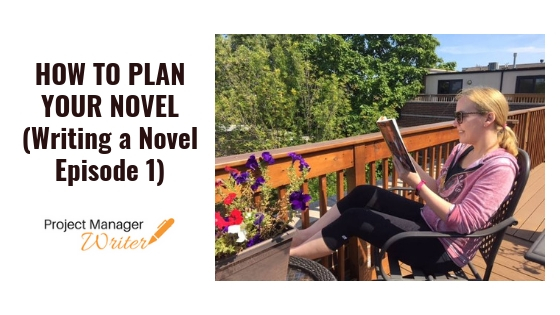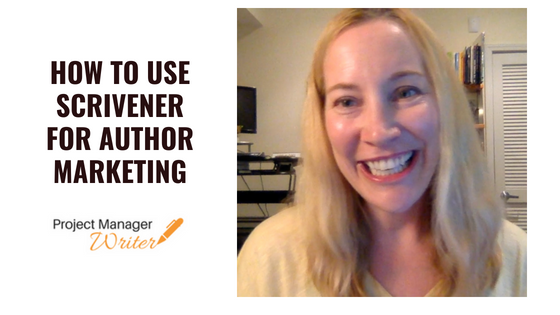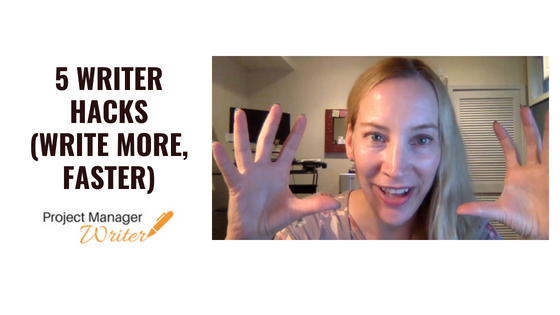When you’re a new author, getting your first book finished is important. How do you improve as a writer so that you can write more books that will find new readers and grow your author business?
1. Get your first book out and learn as you go
Reality check (at least it was for me)—your first book probably won’t sell much. In fact, when you calculate your time invested, hiring an editor, professional cover design, and marketing—chances are you’ll lose money.
I lost money on my first book and consider this a valuable lesson. Even though you can position your book within Amazon so it becomes a bestseller in its category, you may not generate much income. My book became #1 in the Amazon free Kindle category (job hunting) and later reached #5 paid.
Despite the traffic for my book, most downloads happened when my book was free, which meant I didn’t see any royalty payments. After deducting expenses to create my book and advertise, I still have a long way to go before I see any profit. This is why you hear many experienced authors discuss their sales taking off after publishing multiple book titles.
Your first book won’t be your best because you’re still learning as a new writer.
I know it will be your best work possible—at this point in time. I know you’re reading this because you want to make your book a quality product. Your name and reputation are on the line.
But it won’t be your best work until you grow as a writer. And that takes time.
I struggle with this because I want instant gratification. I wish there was an easy formula to become a fantastic writer overnight and ensure your books become automatic bestsellers—don’t we all? However, learning to write well is a craft. Keep practicing, and continue to challenge yourself.
2. Immerse Yourself
Seek out other authors who are making a living from writing. I read how-to books, listen to podcasts, and occasionally pay for training seminars.
You’ll find many email newsletters offering advice on writing. I follow my favorite authors on Facebook. Finding an author’s group on Facebook has helped me connect with a support network. It’s a community of fellow writers trying to navigate this crazy world of self-publishing.
I recommend checking out author Joanna Penn (thecreativepenn.com). Her website offers fantastic tools and her weekly podcast, The Creative Penn, is a must for new writers. She makes her living writing fiction, non-fiction, speaking, authoring courses, and podcasting.
As I engage with these and other resources, I get ideas for new book topics and blogs. They teach me about the self-publishing industry, and then I use my blog to share that information with others.
3. Think of Yourself as a Business
You won’t make money with one published book. That’s why it’s important to write multiple titles and, if possible, a series.
Why? When you offer books on Amazon or other self-publishing platforms, you can tie books in a series together. This helps with marketing—there are more eyes on your various books. Plus if someone reads one of your books and it resonates, they are more likely to go buy others.
I recommend you write books on related topics. For example, my first book was non-fiction based on my personal experience following a layoff. I provided tools for others wishing to deal with job loss or wanting to change careers.
This book and the follow-up are a series on writing and self-publishing. I have several ideas for other non-fiction books too, on topics ranging from self-publishing, to time management and tackling goals.
Soon I want to have a go at writing fiction. There’s a few ideas floating around in my head, but I’m not ready yet to commit to starting these projects. I know they’ll be a massive undertaking, especially since they’re in different genres than my other books so far.
Many indie authors advocate publishing numerous titles to find more readers and generate book sales. This takes time, so you’ll want to avoid writing on a lot of unrelated topics.
Since you’re unlikely to make significant income on just one or two books, consider turning your brand into other revenue-generators such as online courses, coaching, and speaking engagements.
I recommend taking time to think about yourself as a business brand. Write out your purpose, your audience, and your goals for the next six months, or the next year. What are you hoping to achieve? What does success look like to you?
4. Avoid Perfection
As a recovering “Type A” workaholic, I want to edit and re-edit my book until it’s perfect. However, perfection doesn’t exist. There’s always something that could be improved.
After trying to get my first book “perfect” before sending it out to an editor, I hit a point where I realized it was just time to let go.
I don’t have kids, but I consider my books my “babies.” Think of a new mom with her first baby. She’s stressed and worried she’ll mess up, right? By the time the second kid comes along, she’s much more relaxed.
That’s how I felt with my first book. I thought I had to make it perfect. Then I realized I can always make a second edition. Only when I accepted this did I send my book out into the world, ready to move on.
I recommend giving your best effort to self-edit only twice (three times max) before sending to an editor. I print my draft and mark it up on paper—maybe I’m old fashioned, but I can see the structure better this way.
Avoiding perfectionism gets easier as you produce more writing, whether it’s books, blogs, or articles. I still spend hours crafting the right words, but I’m getting better, and so will you. Provided you have something important to say, who cares if you’re not a perfect writer?
5. Avoid Analysis Paralysis
A lot of novice writers think they need to add a ton of research or data into their books. Let’s be honest: do you enjoy reading books with loads of statistics? I find them boring. Books like that end up being dry—and too long.
Also, consider the reading habits of your audience. When was the last time you read an e-book cover to cover? In non-fiction, it’s tough to hold a reader’s attention for 200 plus pages. That’s why I recommend keeping your book brief and to the point. Data should be included only when it’s relevant, not just to fill pages.
New writers can spend an inordinate amount of time on non-writing details. I am guilty of this. I spent hours researching and looking for the perfect title and cover design. You shouldn’t get hung up on these components too early. Get your first draft to 80% complete and ship it off to your editor.








Leave A Comment